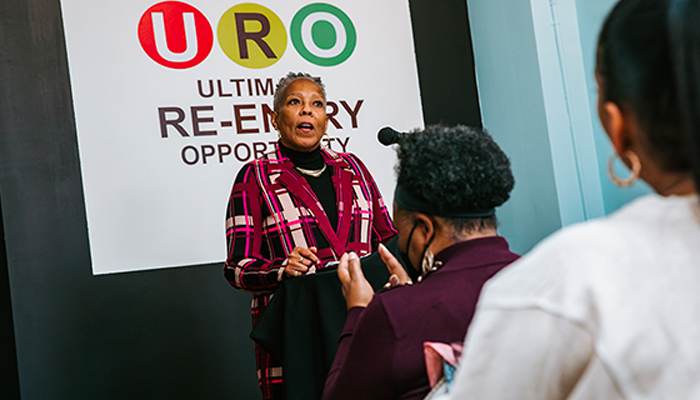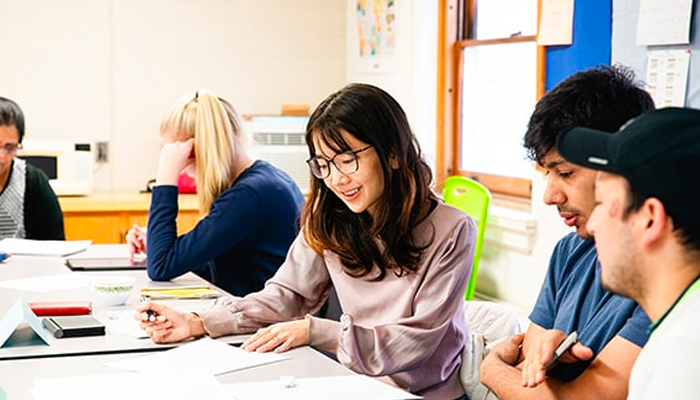Educational programs that further the practice & understanding of social entrepreneurship & transformative action.
CTA offers educational programs for its projects, community members, and Cornell students. We teach undergraduate courses in social entrepreneurship at Cornell and regularly offer workshops in compassionate communication, nonprofit management, social entrepreneurship, and transformative action. In 2021, the journal Experiential Learning and Teaching in Higher Education published an article written by executive director, Anke Wessels, and student leaders of Anabel’s Grocery entitled Fostering self-authorship and changemaking: insights from a practicum in social entrepreneurship. In 2016, CTA’s model as a nonprofit incubator of social entrepreneurs affiliated with a major university was recognized by the Ashoka U Cordes Innovation Award as a high impact and highly replicable innovation in social entrepreneurship education.
Since 2008, CTA’s executive director, Anke Wessels, has taught courses in social entrepreneurship in Cornell’s Dyson School of Applied Economics and Management and led Cornell’s involvement in the Ashoka U network of changemaker campuses. In 2011, her course “Social Entrepreneurs, Innovators, and Problem Solvers” was recognized as one of the top ten most rigorous and innovative in its field by Ashoka U, a global association of the world’s leading social entrepreneurs. In 2016, CTA and Cornell were honored with the nationally recognized Cordes Innovation Award for our innovative, replicable and proven model as a university-affiliated incubator of nonprofit social entrepreneurs. In 2017, she began teaching a course to support students involved in the running of Anabel’s Grocery, a student-founded and student-led CTA project. Students apply principles of social entrepreneurship to examine how forces of racism and capitalism produce inequities in the food system and discuss how alternative food initiatives, such as this nonprofit grocery store, can become public spaces for food justice and anti-racist action. All of this is made real as they run every aspect of the grocery and its educational and outreach programs.
This hands on learning lab helps students consider the social and environmental impact of their own food decisions. Here are a few comments from students:
The course readings, guest lectures, conversations, and videos on capitalism in the food system have radically challenged the way I see the world. I can now place my food and decisions made around my food in this larger narrative of the commodification of life, land, and labor. I think this will inform how I approach almost every challenge or topic going forward in my life.
“Learning about systems thinking has opened my mind! It gives me a whole new understanding of how problems arise and how to understand effective interventions without blaming people. “
“I’ve also been transformed by having vocabulary for the way Systems Thinking, Theory of Change and Ripple Effects work. I think I already had a mindset that tended towards thinking about things connected and holistically. But to realize that there are full theories and strategies that line up with my way of thinking about the worlds has made me so much more thoughtful and aware of the interconnections and influences in everything I do.”
The Center for Transformative Action is an independent 501(c)3 affiliated with Cornell University. As an affiliate, our center plays a unique role by offering courses and programs to Cornell University and serving as an incubator for innovative nonprofit social ventures on campus, in our community and across New York State.
Since 2008, we have taught courses in social entrepreneurship at the university and led Cornell’s involvement in the Ashoka U network of changemaker campuses.
CTA began as the Center for Religion, Ethics and Social Policy in 1971 to house the social justice efforts that emerged from Cornell United Religious Work in the 1960’s. In 2006, we re-focused our vision to deal with a polarized global society and brought transformative action to the forefront of our efforts, changing our name to reflect our new vision. In 2011, we expanded our fiscal sponsorship offerings to include projects from across New York State.
For six years, CTA organized the Finger Lakes Social Entrepreneurship Institute. The last institute took place in November 2017.
The institute featured tools essential to the success of a social venture, keynote talks, presentations by inspiring and innovative social entrepreneurs, one-on-one coaching, and field trips to local social ventures. The institute supported new and experienced social entrepreneurs with valuable knowledge, training, and a community of like-minded individuals who are committed to creating economies that are ecologically sound and socially just.








